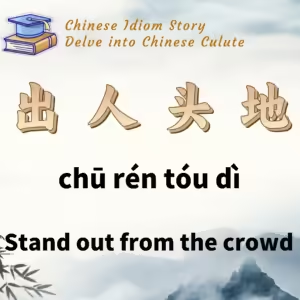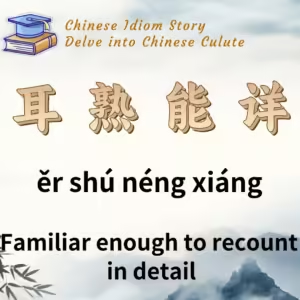
Chinese Idiom: 名满天下 (Ming Man Tian Xia)
English Translation: Famous throughout the world
pīn yīn: míng mǎn tiān xià
Idiom Meaning: Describes someone who has a great reputation, well-known across the country.
Historical Source: “Su Shi’s Letter to Mei Zhi Jiang” (北宋苏轼《上梅直讲书》)
Idiom Story:
Mei Zhi Jiang, known as Mei Yaochen, was a famous poet during the early Northern Song Dynasty and a close friend of Ouyang Xiu. At that time, Mei served as the head of the National University, which is why Su Shi referred to him as “Mei Zhi Jiang.”
In the second year of the Jia You era (1057 AD), Ouyang Xiu presided over an examination in the Ministry of Rites and asked Mei Shengyu (Mei Yaochen) to evaluate the papers. Among the candidates was the 21-year-old Su Shi, who wrote an outstanding essay. Mei Yaochen believed it had the “style of Meng Ke” (Mencius) and recommended it to Ouyang Xiu. Ouyang Xiu appreciated the essay but suspected it might have been written by his student, Su Gong, and, not wanting to show favoritism, ranked Su Shi second instead of first.
After the examination, Su Shi wrote a letter requesting a meeting with Mei. In his letter, Su expressed that having recognized talents as friends is the greatest joy in life. He contrasted the sorrow of Duke Zhou, who was wealthy yet lacked close friends, with the happiness of Confucius, who, though poor, found joy in having many disciples as confidants. He mentioned his admiration for Ouyang Xiu and Mei Yaochen and his desire to befriend them.
In his letter, Su Shi wrote:
“This spring, scholars from across the land gathered at the Ministry of Rites for the examination, where you and Ouyang Gong personally tested us. I did not expect to place second. Later, I heard that you admired my essay for its Mencius-like quality, and Ouyang Gong recognized it for its departure from worldly norms, thus I was listed among the top. This was not due to recommendations from people around you or from relatives; after longing for over a decade, I finally became acquainted with someone I had only heard of.
Reflecting on this, one cannot merely pursue wealth without merit nor live in poverty without purpose. If one has a great sage and can be his student, it is enough to rely on that connection for joy. Gaining transient wealth while being followed by dozens of carriages and servants to receive admiration from the common folk is nothing compared to my happiness.
The scriptures say: ‘Do not blame heaven, nor accuse others’; ‘One can live leisurely and peacefully.’ Your name is renowned throughout the world, yet your position is only of the fifth rank. Still, you remain gentle and do not show anger, and your writings are broad-minded and sincere without complaint. This must stem from your deep understanding of the way of sages, and I sincerely wish to hear your guidance.”
From this story, the idiom “名满天下” emerged, illustrating the profound impact of personal reputation and relationships.






